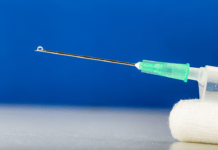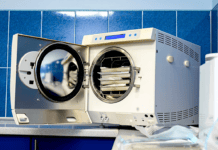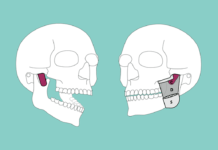Just some background info first. I applied to jobs every day for a week until I got a call from a dentist to set up an interview. The interview went ok, and I was asked for a working interview. The pay was going to be less than I had asked for but I understand being a new grad and inexperienced.
Working interview went ok for the most part. A few quirks about the office but I attributed that to being new. Doctor asked me to come in for three more working interviews (M, TH, F). I accepted the position and started working part-time until a week later, and I received a call from the dentist. She wanted to offer me full time with benefits since she was having trouble finding another part-timer for Tuesday and Wednesday. I couldn’t believe my luck. I accepted and started working five days a week.
Some background on the office. Been around since 2005. Accepts Medicaid, private insurance, and FFS. three rooms for operative, two hygiene rooms, one overflow room.
The honeymoon feeling waned quickly as I found out more about the office. For one, recall patients and new patients are allotted the same amount of time with the hygienist (45 minutes). New patients are frequently late getting in my chair because of the paperwork. My classmates have told me that in their offices, new patients meet the dentist first before a prophy or radiographs are prescribed. At my office, if the new patient is “healthy” then their 45 minutes includes the med history review, 4 BWX, 2 anterior PA’s, a PAN, prophy and comprehensive exam with the dentist. I feel like I have to become some sort of superhero to accomplish this without the OM and dentist on my case about staying on time.
Secondly, there is high staff turnover. In the two months I’ve been there, I have seen 4 new assistants. Apparently, I’m the 3rd or 4th new hygienist in 4 months. The OM, one front desk, and lead assistant have all taken a month off at a time after having confrontations with the dentist, who can be quite abrasive even in front of patients. Our newest assistant has been hired for full time but after a week was asking us if we knew any other places hiring.
Thirdly, the instruments we have are apparently all bought used on eBay, according to our other hygienist who has been here 11 years. Our ultrasonics are on their last legs. Mine broke about a week ago and we haven’t been able to replace it. We often have two or three of the same instrument in a hygiene pack because they are so dull with nothing left to sharpen that we hope another instrument has an edge.
Fourthly, after any 4341, she checks my work. She wants us to get every last piece even in pockets 6mm+. We don’t usually refer out to periodontists and try to do it all here (yes even with 8-9mm+ pocketing).
Finally, we hygienists have the duty of calling and confirming patients two weeks out and three days out. We also have to clean the bathrooms, parking lots, etc. The OM implemented a new checklist that if we don’t complete all these tasks, we may not go to lunch or leave for the day.
I am starting to feel anxious every day going to work. I have lost my appetite and stopped working out. There are days where I am on the verge of tears because of how crazy the schedule gets or how afraid I am of the doctor (she yelled at me one time down the hall to stay on schedule). I want to leave, but I feel like I should just be happy to have a full-time job (or any job for that matter).
I want to be happy and successful in hygiene like all my hygiene sisters I graduated with, but the stress has made me feel like a failure.
Any advice?
It breaks my heart to read what you are going through. Sadly enough, I have been in your situation with my first permanent position out of school, just like you. While you want to be grateful to not only have a job but a full-time job, the bad far outweighs the good here.
45 minutes for all patients: No matter how seasoned you are, this simply isn’t enough time especially for new patients. The ADHA did a breakdown of a periodontal maintenance appointment (See page 8, table V: http://jdh.adha.org/content/88/2/87.full.pdf+html).
The time needed ranges from one hour and five minutes to one hour and 43 minutes, with an average of one hour and 24 minutes needed. If this amount of time is required to provide proper patient care, I wonder why doctors are shortening hygiene times to 50, 40, or even as little as 30 minutes? On the surface, it might seem that squeezing another patient or two into the schedule would increase production. I would argue it actually does the exact opposite, and this is only looking at short-term boosts to production, not long-term production needed for the longevity and health of a dental practice. I say this because, by rushing a hygienist, it does not give you the time to explain treatment a patient may need or by building patient rapport that brings patients back and that leads to practice referrals. Only focusing on the short term will lead to the office’s bottom line suffering in the long term.
Even further, by rushing through appointments, the doctor could be putting themselves and you at risk for a malpractice suit. If a hygienist is rushing through appointments, it can lead to a less than thorough health history. There’s a possibility they could miss pathology like periodontal disease or suspicious lesions. They might not have enough time to write thorough chart notes, which are legal documents that could actually be your saving grace in a lawsuit, among many other things. Doctors need to ask themselves, could your practice survive or thrive after a malpractice suit? In today’s world, social media spreads news like wildfire. Why would a doctor set themselves up for something like that to happen to that directly affects their livelihood?
Patients can tell when their care is being rushed through and isn’t thorough.
If a patient feels they weren’t treated as an individual with the time taken specifically for them, patient retention rates and referrals can drop. Without patients, there’s no practice.
Lastly on this subject, as a doctor, what steps would they leave out of a crown prep or MOD on #30 if their appointment time was shortened? I think I’d be safe to assume that no steps could be left out. How would the quality of their work suffer if their time was shortened for treatment? Again, the same logic applies to hygiene appointments. The length of appointments matters and is just as important to a doctor as it is for a hygienist.
Beyond giving sub-par treatment to a patient, stressing your body out to provide treatment this quickly wears on your body. Ergonomics tend to go out the door when you are rushed. This can lead to musculoskeletal injuries and in turn, shorten your career. Not to mention what it is doing to you emotionally.
The most efficient offices I’ve worked at have the first appointment with a new patient with the doctor. It makes financial sense because a dental assistant can take all radiographs and help with the comprehensive exam. Once the periodontal condition is diagnosed, then the patient is scheduled with the hygienist, for the appropriate amount of time. Legally, it makes more sense too because in most states a doctor must diagnose for a hygienist to treat.
High staff turnover: Huge red flag. Not much explanation is needed for this one!
The abrasive attitude of the dentist: Everyone has “off” days, but they certainly shouldn’t be every day. Mutual respect between dentist and staff is an absolute must. A dental office should be a team environment where everyone works together in a smooth, efficient, respectful way. If there are several confrontations happening without any effort to make the office a team and make situations better, it’s a toxic environment. Further, chairside manner is a biggie. No boss should demean staff in front of a patient.
Instruments: If the dentist needed a new high-speed handpiece, diamond bur, or ball burnisher, they’d buy it with no question because they must have it to do their job properly. The same holds true for a dental hygienist and the instruments you use. Stainless steel hygiene instruments need to be replaced every nine to 18 months. Sometimes even more frequently depending on the difficulty and amount of patients treated, the number of hygiene set-ups an office has, and other factors affecting usage. If you are expected to deliver the best care to your (and technically, the doctor’s) patients, you need functioning, not worn out and passed their prime, instruments. Not being provided proper instruments, you aren’t only doing a disservice to your patients, but dull and worn out instruments are taking a toll on your body. If the doctor is forcing you to use dull and worn out instruments, this has the possibility of shortening your career due to the risk of musculoskeletal injury, just as being rushed can. I’d hope that as someone who has chosen a career to help and care for patients wouldn’t want to do so at the expense of an employee’s longevity of health and well-being.
Even further on the topic, time is money, right?! When a hygienist is using worn out, dull instruments, you have to work harder which is less efficient and time-consuming. Here’s another comparison for the doctor: If your front desk has a slow, out-of-date computer that keeps crashing, they will replace it. The time wasted for both the front office staff and for the patients waiting to get their next appointment scheduled simply isn’t worth the headache and frustration. It’s a business expense. Again, the same goes for hygiene instruments. On average, hygienists bring in one-third of the office’s total revenue. Further, on average, 50-80 percent of a doctor’s (restorative) treatment comes from hygiene exams. You must be allowed to do your job properly with functioning instruments because you are a producer for the office and do add to the office’s bottom line.
Lastly on instruments, using poor quality, re-tipped, and/or old instruments can lead to breakage. If an instrument breaks in a patients’ gingiva, or even worse if they swallow or aspirate a broken tip, the patient and the doctor are going to have big problems.
Not referring when necessary: This is neglect. Hygiene instruments are only efficient to about 6 mm. Some studies even show efficiency to only 4 mm. A referral should be made for patients with 8-9+ mm pockets. If a patient’s tissue heals around calculus, it can lead to a perio abscess. This could then lead to RCT/crown and even tooth loss. A patient can take legal action against you and the doctor for this neglect.
Extra duties: Helping out when there’s time is one thing. However, doing the front office or office manager’s job is another. Why would the doctor be paying someone to do a job then have other people do it for them? Especially when you have your own job to do!? This is simply poor business practice. Further, the office manager isn’t the boss, the doctor is. It sounds like the office manager is overstepping their role.
I very highly suggest you start looking for another office and move on. The fact that you are anxious and it’s affecting you mentally and physically simply isn’t worth it. Don’t wait until you regret going into hygiene, become burnt out, or ruin your body, to find a better office. You must work in an office that shares you same patient care standard, period. This office doesn’t seem to meet that standard, and you need to sleep at night knowing you provided the best patient care you could. Every office has their quirks, but your concerns are more than quirks, they are red flags.
However, do take this as a learning experience. Now you know what to look for and ask about when finding your “forever” office. How long are appointments (prophy, PM, SRP, etc.)? Who are new patients seen by first, doctor or hygienist? How often are new instruments provided? Why did the last hygienist leave? How long has the office manager, dental assistant(s), hygienist(s) been with your office? What is the protocol for referring.
Lastly, you are not a failure. You recognized there is a problem and are seeking advice. Failures don’t do that! I wish so much for you to be happy. A new office can make all the difference, and you deserve that. One last tip, do be careful about accepting too low of pay, you are a licensed professional and should be paid as such. I wish you the very best of luck!












